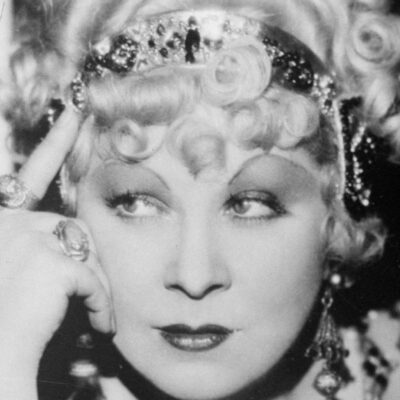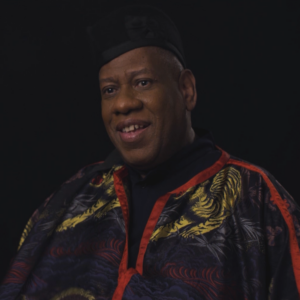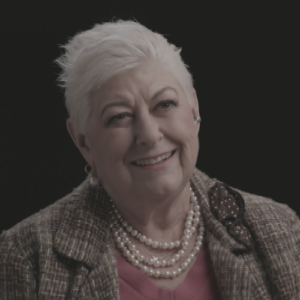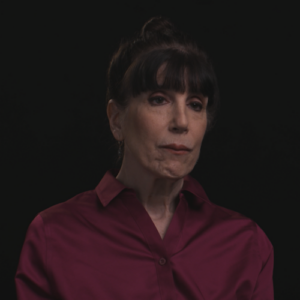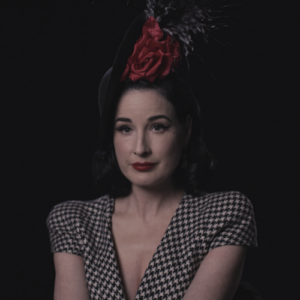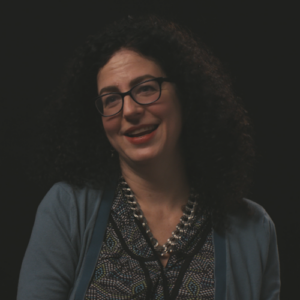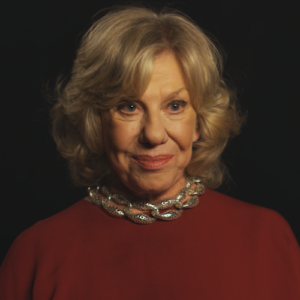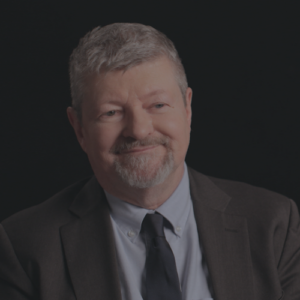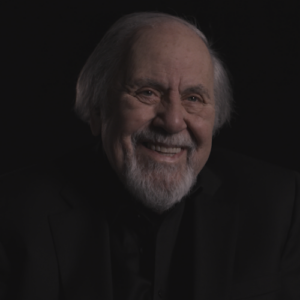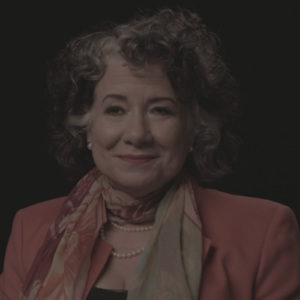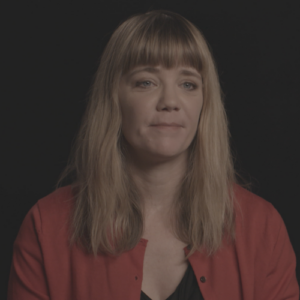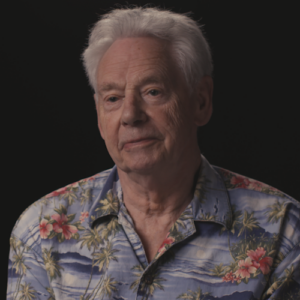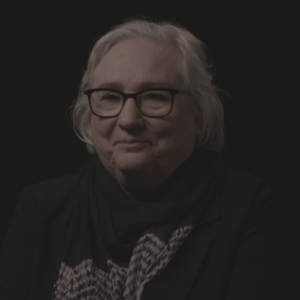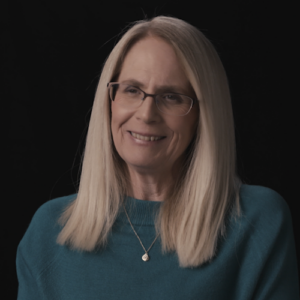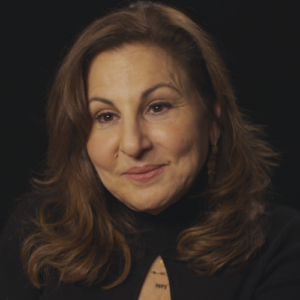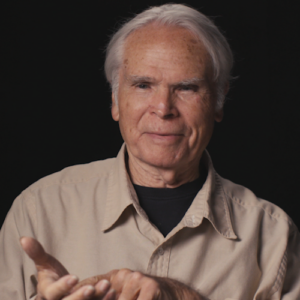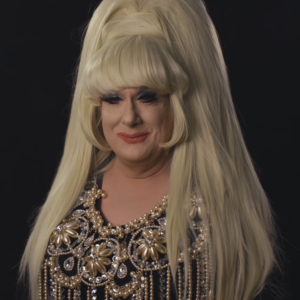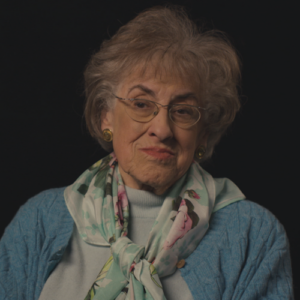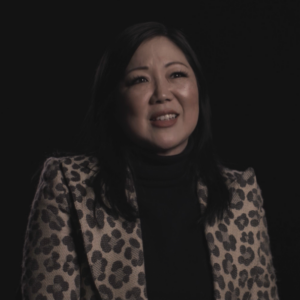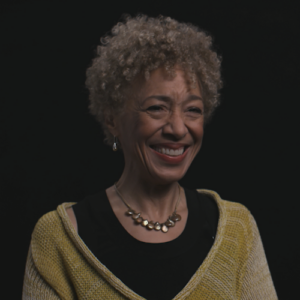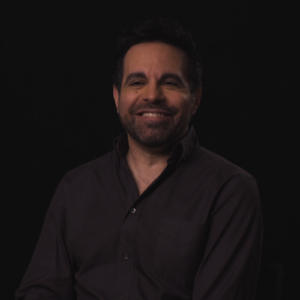Interviewer: Well, I guess the first question is when did you meet her?
Tim Malachosky: I first met Miss West in 1969. I was working and I was still in high school. I was working in the school library. And I saw the famous Life magazine with her on the cover. So I read the article that it was quite interesting and I did some further research on her. I actually found her address, which was her beach house in Santa monica, and I at the time lived in Santa monica. So I decided to write her a fan letter. So I wrote her a fan letter and I thought, wow, that’ll be a you know, I won’t hear anything. Well, I actually put my phone number in in the letter and I sent the letter and I thought, well, I won’t hear anymore. And maybe two weeks later, I get an autographed picture in the mail. And then I got just coming home from school, and I got this phone call and the person said, Is Tim there? And I said, speaking. I said, Well, this is Mae West. And I said, No, who is this? And she said, And then she did The Voice. Oh, no, dear, it really is. And I go, Oh. And she said, I want to thank you for your fan letter and I would like to meet you. And I said, Really? And she said, Yes, I’m having a gathering at my beach house, you know, with my psychic, and I would like for you to come. So I said, okay. So she told me the time and went and I went and I was like a basket case, you know, thinking, Oh, my God. And so I arrived in the beach house. She had an area at the dining room. She would sit. It was glassed off facing the living room, and everybody was in the living room. So afterwards, everybody would go in to the dining room to greet her and and say their hellos. So I waited till the very last. And I went in and I said, I’m Tim. And she’s, Oh, I’m so glad you came. And she said, It’s nice to meet you. And we talked about Myra Breckinridge that she was filming at the time. And I think she just finished that day. Her song Hard to Handle. They did it in one take. And she said, Well, give me a call. I’m in the phone book, you know, And I thought, Oh, okay. So a lot of people knew she was in the phone book and they thought, Well, we can call her any time. But it actually was the apartment building switchboard. So they had to, you know, get cleared to call. So I waited about another couple of weeks and I called up and woman answered, and I said, Well, I’m calling for my wife. And I said, Well, who’s calling? And I told her who I was. And she said, Just a moment. And then she came back on. She said, Go ahead. And I go, Whoa! She didn’t remember me. And it just went from there. And then one day she actually called and she said, I am I need an assistant. Would you be interested? And I said, Yes, of course. And she said, Well, meet me at the beach house at 4:00. And that’s how it all started.
Interviewer: He said. So the first time you ever went to one of her sales?
Tim Malachosky: Yes.
Interviewer: What was that.
Tim Malachosky: Like? Well, the science is that she had her psychic at the time was Dr. Richard Ireland. He had quite a celebrity following and a lot of celebrities would come. I remember Rona Barrett used to come quite frequently. Sally Struthers, Clint Walker, Joan Blondell, just various people. And it was quite interesting. The psychic would come in. I would basically as they come in, I give them a piece of paper and say, Fill out three questions, but don’t put your name, but put an identifying mark so that you can, you know, recognize. And then I would collect them and he would come in. He’d blindfold himself, tape the blindfolds and everything. And I put all the papers in front of him and he would just kind of grab one, hold it up to his hand, and he would read what’s on the paper. And it’s quite astounding.
Interviewer: To read what’s on the paper that look.
Tim Malachosky: Yes. Yeah. He could pick up through even taped his nose because he said people thought that he had a hole drilled that he could, you know, phrase these things.
Interviewer: Do you know where that interest started? These instances, known.
Tim Malachosky: As far as Miss West is concerned, that started way back when her mother passed away back in the thirties because her mother passed away in 1930. And then she probably the worst time of her life is when her mother passed away and she kind of just went bonkers. That’s when she started delving into wanting to know if there’s life after death. And she just developed interest in it from then on. So a big part of her life.
Interviewer: You know, when her mother passed away, I think she sort of referred to it as the greatest tragedy in her life.
Tim Malachosky: It it was her only start when Miss West Mother passed away. It was the greatest tragedy of her life. Her mother and her were extremely close. Her mother thought she could do no wrong and she supported her. Her father didn’t necessarily support as much. At the beginning, he was against it. But then he saw what a success she was. And then he supported her. But she was kind of unfortunate that her mother didn’t get to see her in movies. But she knew in the back of her mind, she knew that she would eventually go into film.
Interviewer: Now, her relationship with her mother growing up, it sounds like it was sort of it was definitely different from the other kids. She would talk about them.
Tim Malachosky: When she was growing up, her mother thought she could do no wrong. She was like the apple of her eye. And her mother had aspirations of being in theater. But she really, you know, at that time she couldn’t. And I think her mother kind of was acting her life out in her daughter. Well, what about her father? Her father? Not so much. He didn’t like that the mother coddled her so much. But then after she was more famous and saw what she can really do, then he pretty much supported her. She was.
Interviewer: I think, pretty close with her sister as well. Mm.
Tim Malachosky: You want me to tell the real story? Okay. Here we go. Miss West was close with her sister, Beverly, and fortunately, I think there was a jealousy between them. Beverly was a little jealous of Miss West career. And Miss West tried to promote her sister. She would even have her in some of her shows. And even in the 1930s, she would do a vaudeville act. Mae West sister and sing and and different things. And as the years went by, Beverly smoked, which Miss West didn’t and didn’t really care for that. But she was a heavy drinker. And I know Miss West had a couple times, sent her to be dried out because she was getting bad. And even in the later years, it was getting really bad. And I remember we had to go to the ranch at one point and black out all the mirrors because she would be hallucinating things in the mirrors. And we couldn’t leave them alone because we were afraid that something might happen. It’s unfortunate because Beverly was very talented. She did a few recordings. She was a great blues singer and she even wrote some songs, but she just didn’t follow the career that she could have had. And Miss West pretty much took care of her. We would go to the ranch maybe once a week, and she’d give her money to live on. And it’s kind of a sad situation. And, you know, she loved her family and she took care of her family.
Interviewer: Uh, when you mentioned the Bond films, one thing is so interesting to me is that the disparate people who influenced her early on.
Tim Malachosky: Well, when I know back in when she was growing up as a child, her mother’s favorite, which had two favorites, and one was Lillian Russell, who was queen of the theater. The other was Eva Tanguy. And I guess her mother used to take her to see the tango. And it’s interesting because later in years they became friends. And in the thirties, she became very ill. And Miss was used to send her money to pay for her doctors. She took care of a lot of people that a lot of people don’t know about. A lot of charity, a lot of down and out actors that didn’t have work and her money. She would find them a part in one of her shows or in a play or in a film. So she was always looking out for that. As far as influencing her and her early career as she kind of created her own, she wanted to be different. She didn’t want to copy anybody else. And she was unique and totally different than anybody.
Interviewer: The Lillian Russell, look at 1890. Look. Why do you think she chose that as sort of her signature look when she started doing films? Mm hmm.
Tim Malachosky: I think the Lillian Russell look appealed to her because she loved the big hats. She loved the form fitting gowns, the glamor of it. And that probably was one of the influences for Diamond Little as far as that era. She loved that era, and that’s kind of her childhood. When she was born was still that era and that influenced her. And her mother was a fashion model and a modesty. So that kind of helped influence her close to.
Interviewer: You know, sort of hard to imagine her flapper dresses.
Tim Malachosky: Yeah, very much so.
Interviewer: The shape.
Tim Malachosky: Now.
Interviewer: With the with the diamond little character, was that really when she sort of her persona came together or was a performer.
Tim Malachosky: A diamond? Lil was actually her biggest hit on Broadway, even though Sex made her notable. But Diamond Little really changed her her characterization because sex was more of a prostitute type character. But Diamond Little, she that was a special because she wrote the play and that was and she wrote sex, too. But she wrote it under a different name. Jane Mass.
Interviewer: And the place in between. The gay place.
Tim Malachosky: Oh, the drag. She wrote the drag. They asked her not to bring it to New York City because they weren’t prepared for all the riots or whatever the time. But she wanted to, she said, glorify the homosexual. And she had a big drag ball and they actually closed it down for that. But, you know, they eventually reopened it. But she wanted to redo it, but she never did.
Interviewer: Didn’t you try to make it as a movie?
Tim Malachosky: There was talk of her doing the drag as a movie probably in the 6070s period, but it never came to fruition.
Interviewer: It seems like throughout her career, she had a real kinship with gay men.
Tim Malachosky: Yes. Especially because back in, I should say, back in her vaudeville days, a lot of the prominent performers were gay and she supported it. You know, she always said it’s a female soul and a male body. And so she you know, she didn’t associate with a lot over the years. Yes.
Interviewer: Do you remember the first time you saw their families?
Tim Malachosky: Yes. Was it the first movie I saw, and probably still when I remember quite well, was Belle of the Nineties. And I actually saw that movie just before or at the time I wrote her the fan letter and I think I mentioned that in the letter. And I think that movie is very unique and intriguing to me. And if you kind of look at a lot of her movie portrayals, a lot of her scripts actually involve personal things that had happened to her in her life. It’s like in the nineties when she’s out in the carriage, she gets robbed while at the apartment. She was in her car getting ready to go to the studio and she got held up and robbed. So there’s a lot of true stories in her scripts.
Interviewer: Think of any others.
Tim Malachosky: You may think, Well, then I’m no angel. She actually wanted to be a lion tamer as a child. And so she specifically Paramount came and said, Well, we need another another film for you. So what would you like to do it? And so she thought and she said, Well, I want to always wanted to be a lion tamer. So then she wrote, I’m no Angel. And she portrays Tyra the lion tamer. So that, to her was a childhood fulfillment. And so that was incorporated into the film.
Interviewer: And she actually worked for The Lion, didn’t she?
Tim Malachosky: Yes, she did. And she said on the set she was waiting for her cue. And she kept saying, Why aren’t they calling me? And she said, Well, come on, we’ve got to get this done. And so she went and got in the cage and started they started to say, no, we’re not ready. And she said, no, we’re doing it. And so they shot it with the lions. And then afterwards, she she said, Well, what’s the hold out? And she said, Well, we do want to tell you at the time, but the trainer got mauled by one of the lions and she said, Oh, my God, I’m glad you didn’t tell me before I went in there.
Interviewer: Did she ever talk about having a favorite of her movies?
Tim Malachosky: I really think dear to her heart, was she down in Rome? Because that was the screen version of Diamond Little because she she wanted to do a color version of it. That was her one thing she wanted to do. And unfortunately, that didn’t get done. She also wanted to do a film version of Catherine was great, but that wasn’t that was one of her priorities that didn’t get finished either.
Interviewer: So after she leaves Hollywood and she goes back to the theater, Yeah, Where would you say it was her hurt more in the theater? Or was she really more of a movie person?
Tim Malachosky: I think her real heart was the theater. She liked the instant response from the audience. She liked the interacting with an audience. Film, you know, you’ve just film. She can it. She enjoyed her film career. I mean, but her heart was in the theater.
Interviewer: So one thing I find really interesting about her is just the idea that she’s she’s censored in every medium that existed during her lifetime. Did she ever have anything to say about that? Like the the radio show, for one thing.
Tim Malachosky: She was the queen of censorship. I think she found it kind of intriguing. She didn’t like it, but she said her first two movies was not so bad. But after that, they were like censoring her really bad. She said, I would even have to put things in the scripts that would embarrass me just to get them to approve what I really wanted. And as far as the Charlie McCarthy show goes, she said, Well, they approved the script. You know, it’s not like she said. But the problem was it was aired on Sunday night and she said it wasn’t necessarily what I said, it’s how I said it. That created the ruckus. And she said she got banned for ten years on national radio.
Interviewer: Did that hurt her career not being on the radio that whole time?
Tim Malachosky: You know, I mean, she still had local radio stations that would interview her whenever she was touring or whatever. But as far as national radio, I don’t think it really hurt her career at all.
Interviewer: What about some of the TV she did like Mr. Ed You know?
Tim Malachosky: Mr. Ed She did as a fan, or Arthur Lubin, who she knew way back in the thirties. She was supposed to do as a second, but unfortunately she became ill. But it was kind of nice to see her. It was different, totally different for her.
Interviewer: And it was very successful, wasn’t it? Why do you think that was?
Tim Malachosky: Well, Mr. Ed, for some reason, was a kind of a I call it a cop show, and she was the queen of camp. So it still still watch people watch it all the time.
Interviewer: To jumping around a little bit are saying various similar when asked about various men in her life. The main one, of course, being part of. Mm hmm. Basically, who was he? Why did she choose him? All those men.
Tim Malachosky: Paul mainly. Was Mr. Maryland when she was doing her nightclub act in the 1950s. He, I guess, was interviewed or auditioned for the show, and she liked him and had him as one of the women in the show. And there was something about him that she could she trusted him. He basically looked after her and it just grew into a great relationship. And he just stayed with her all those years. He was he was a fantastic cook. I mean, food he used to cook was, uh, I miss some of those dishes, but he was very kind, very nice man. They both treated me very, very well. I felt very honored to even be associated. There was times I would sit there and be going over fan mail and things with her, and I would just, you know, read letters saying I’d give anything to have a second with you. And I’m thinking, Oh, my God, I’m so lucky because I get to spend all this time with her. And, you know, I mean, how fortunate was I? I mean, I don’t think anything could highlight my life, anything more. I’m just so honored and flattered.
Interviewer: It’s just a it’s it’s incredible. Just the idea of writing a letter to her and then and then sort of having. Having her in your life. Mm hmm. The next two decades, you know. How do you think her relationship with Paul changed over time?
Tim Malachosky: I think over time they grew more fonder of each other. They relied on each other. He had nothing but good things. I mean, he basically handled her finances. Management advisor. And whether he thinks this is a good idea to do this or not. And he had her totally in his good thoughts. I mean, he looked after her diet, made sure she exercised.
Interviewer: That’s like he was very protective of her.
Tim Malachosky: Extremely protective of her. Extremely. I think he was protective of both of us.
Interviewer: Can you think of any times where he sort of jumped to her defense?
Tim Malachosky: Oh, a lot of at that time, A lot of the time, especially, you know, if we if we be out somewhere and fans would kind of come around, if they get kind of rowdy, he would, you know, keep them away. I mean, he’s is it was interesting to go out.
Interviewer: Another sort of important in her life. Jim Tierney, what was the trajectory of his relationship with me?
Tim Malachosky: He actually Jim Timoney was her mother’s attorney way back. And when was started into vaudeville and into the theater, she asked Mr. Timoney to go over contracts and see if everything was done the correct way. And he kind of took an interest in her and her career. And I think he kind of was like to be wanted to be intimate with her. I don’t know if that really ever happened. I’m sure maybe. But he was very overly protective later, especially in movies. And I think that was a little hindrance for her. But she did care for him and, you know.
Interviewer: Really protective. Like he kept her out of some projects he didn’t think were good for her.
Tim Malachosky: As far as projects. Yes, he did advise her. But I think more men in her life, I think there was probably a little jealousy as far as that goes, because I remember she told me, she said anytime there is a. The guy around, but he didn’t like. He would call her and say, You don’t want anything to do with that guy. He’s got syphilis. And she would just kind of laugh.
Interviewer: That’s amazing. So he must have loved only man being in the picture.
Tim Malachosky: Well, I think only man probably was the real love of her life. He helped. He was one of the backers for Diamond Lil, and they really did care for each other. The thing that turned her away was his connection with the Mafia, and she basically had to break it off because she didn’t want to deal with any of that and he didn’t want to give it up.
Interviewer: I didn’t realize the relationship was so strong.
Tim Malachosky: Yes, it’s interesting.
Interviewer: So Paul wasn’t the love of her life?
Tim Malachosky: Well, in later years, yes. But at that particular time in his twenties, that was probably she would have married him.
Interviewer: Why didn’t she marry him?
Tim Malachosky: Because of his connections with the Mafia.
Interviewer: Why do you think she would marry Paul?
Tim Malachosky: I don’t know. I don’t. Well, I think I don’t think she would have ever married anybody else.
Interviewer: Why Frank Wallis?
Tim Malachosky: Frank Wallis was more or less. She got talked into that marriage that when she was on tour, on vaudeville tours and some of the girls were saying, you need to get married because, you know, you’re a single girl. Anything can happen. So, you know, she was mad. I mean, it’s on the same circuit. And he cared for her. She thought he was okay. He was a dancer. So I think they even did an act together. And so she kind of got talked into marrying him and his. Her mother didn’t know. Her father didn’t know. I think Beverly knew. So they got married secretly and she lied about her age. She was really 17. But the marriage certificate said 18. They were married for a little while. He basically, after a week or so, started talking about settling down, having a house, having her as the housewife. And she’s that, oh, no, that’s not going to happen. So she made arrangements for him to go on a separate vaudeville circuit. And she said that supposedly her Timoney had sent him divorce papers, supposedly the divorce papers. To her knowledge, were signed and the divorce was finalized. Well, apparently not, because then in the thirties, Mr. Wallace comes and says, I may was husband. And so she tries to deny it, saying, No, you know, I didn’t marry him or whatever. And then he keeps pursuing wanting spousal support and all this. So this battle goes on for years. Finally, they get divorced. She won the divorce because he had remarried without getting a divorce.
Interviewer: What did it do to her career when he came back?
Tim Malachosky: I really don’t think it hurt her career. And he got her lots of publicity, but I don’t think it really hurt her career at all.
Interviewer: Even though people didn’t really know how old she was before then.
Tim Malachosky: Most well, you know, a lot of people didn’t know her age, but when she started in movies, she was almost 40. I don’t think her people realized her age. And for her to start a career at that age in film was kind of unheard of.
Interviewer: Yes. So. But when that marriage certificate comes out, it has her birthday.
Tim Malachosky: Yes. Her marriage certificate had her birth date on it. And that’s when she corrected it and said that she was 17 and her original birth certificate proved that she was 1893. There’s still a controversy about that. You know, some people say 1892. Some say 1893. But officially, it’s 1893.
Interviewer: And another man in her life who I know she wasn’t super keen on, W.C. Fields.
Tim Malachosky: Yes, W.C. Fields. She knew W.C. Fields from vaudeville days. There was no real kinship between them. But Universal came to them and said, We want you to do this movie. And she said, okay. So she wrote the script. I think the original title was The Lady Bandit. And then they signed W.C. Fields to it. And she wasn’t too happy in the contract. She made stipulations that if ever he came in drunk, she could have him thrown off. And so they actually had a kind of battle with the script because she wrote the script and he wanted to put in like a five minute segment. So she read what he wanted to print, and she said, okay, you can put that in. So then after that, then he said he wanted writing credit. And so they battled back and forth with that. And finally she just said, Let him have it. And then one day he come in, They were shooting a scene with a bunch of extras, and he had been drinking. And so she came in on the set and she he was clowning with the extras and everything. And she said, he’s been drinking, Get him out. And so they took him out. And as he’s going out, he tips his hat at her. And then she said after that, she didn’t have any trouble with him. And then Universal came to her and said that film was so successful, they wanted to do a series. And she said no, once was enough.
Interviewer: Don’t some people think of them as this great?
Tim Malachosky: They do. They think, you know, a lot of fans think that they did all these movies together and they only did one. And she said, out of all the films I made, that’s the one is most remembered and probably my least favorite.
Interviewer: You mention that when you met her, she was doing Myra Breckinridge then. Mm hmm. What did she think about that film as she talk about it?
Tim Malachosky: Well, when she was asked to do Myra Breckinridge, she would only agree to do it if she got could write her own script, you know, her own lines. And they agreed to that. Plus, she got top pay. She got top billing. She changed the name spelling of Leticia. She didn’t particularly think too much of the script itself. She liked her part. She was fine doing it. Unfortunately, they did a chop job on a lot of her scenes. It’s unfortunate that the two songs that she has is incredible and she looks fantastic.
Interviewer: I know she wasn’t. She and Raquel Welch didn’t really clicked.
Tim Malachosky: And her and sweet little Rachel, as she used to call her, did not get along. They really didn’t have any. They only had one major scene together. But her account was more of a drama queen and not that too highly with other actors.
Interviewer: What was more disappointed with the with the reception that that.
Tim Malachosky: Actually she’s the one that got the most reception of that movie. When she premiered in New York, it was like pandemonium. Everybody went out to see her. It was like packed. They had horsemen, cops. They had everything. It was like tremendous. She was thrilled as far as her. Every time she appeared on the screen, she got a standing ovation. The rest of the movie didn’t, but she did. So she was pleased.
Interviewer: No. And it was sex tip. Would you say it was the same thing or.
Tim Malachosky: Sextet was more of a film that she did from her stage play sextet. Only difference is if you were to put the two scripts together and read them. They’re totally different. Basic ideas there. Unfortunately, when she did this movie, she didn’t have the control over it that she should have. So a lot of things. It was two producers that had never done a movie before. The director was fine. It just wasn’t done proper. And it’s unfortunate because it’s her last film. A lot of critics panned it. But, you know, to me, for 85 years old, she did a fantastic job.
Interviewer: Why did she do those two films after taking such a long break?
Tim Malachosky: I think as far as sex wisdom, I think she did it for fans because letters after letter after letter said, We want to see you on another movie is a pretty pretty much I’m sure that’s. Of course, was intriguing to her. It was a challenge.
Interviewer: But one thing I noticed with those, especially with sex, Ted, that’s so different from all her earlier work in terms of dialog that she writes for herself, it seems that she Jeffrey before on she later was that does she feel she had to shop or walk out?
Tim Malachosky: Well, I think she wanted to just show that she’s with the Times. The only thing she detested was nudity and film or bad language. You know, foul language should not like that at all. And you won’t see any of that in any of her. Well, Myra, you might, but she never said that. Same sex. Sex, it was fairly clean.
Interviewer: But there’s some pretty there’s some pretty dirty jokes.
Tim Malachosky: And yeah, there are suggestive jokes. Of course, she’s clean at the suggestion. So, you know, that’s what she’s known for. And double entendres.
Interviewer: Was she aware of how she came across in later years? Did you really think she looked 26.
Tim Malachosky: As far as her age? A lot of a lot of people that interview her didn’t really get the point. She was actually a characterization. And she was 26. She didn’t think she was really 26. But that was just the characterization that she was portraying.
Interviewer: So at some point, as does the sort of the person and the persona emerge.
Tim Malachosky: She did. She kind of would go in and out of character. I mean, basically when I was with her, I’d see the everyday person, which was still part of her character. But she yeah, she would go in and out of her character, especially for the interviews. You know, it’s like Mae West, the sex goddess icon, and that’s what she portrayed.
Interviewer: What were the differences between Mae West, the everyday person, and Mae West Herstory?
Tim Malachosky: Well. Our everyday life was, you know, going through fan mail, doing interviews, sometimes photographs. She didn’t have to really put on her characterization, so we would just be talking normal. But she still had the voice and she still had the most ideas and jokes. But, you know, she didn’t go that extreme.
Interviewer: But was her personality and similar that sort of aggressive?
Tim Malachosky: Oh, yeah. Her personality was the same. You know, any time, especially business wise or, you know, she’s aggressive, that’s how she made her money. You know, if if you were to merchandise something without her permission, you get a letter from the lawyer, Do you sister pay?
Interviewer: And what about all the drag impersonations of her? Did she see them the same way, or did you like that.
Tim Malachosky: As far as impersonators? She. She was flattered. The only time she wasn’t flattered is when they got really vulgar and used bad language. Unfortunately, the one that she really had a problem with was Craig Russell. He used to be her fan club president and Canada, and she reached out to him, had him stay at the beach house and and some things happened at the beach house that kind of broke up the relationship. And then he decided that he was going to do impersonating celebrities. And she basically asked him, don’t do me. And the thing that she didn’t like was he was using her material, making it dirty, not impersonating her with class. And that really bothered her a lot. And that was the downfall of their friendship.
Interviewer: Like we talked about Lady Bunny earlier. Mm hmm. What do you think she would think that lady really doing?
Tim Malachosky: And it was. I don’t know. I have to see it. I’d have to see her do it. And then I could tell you I’ve actually.
Interviewer: She. She has done it.
Tim Malachosky: Oh. I have. I only know Lady Bunny. I’ve never seen her actually before. Harm. So I’m not sure I know Charles Pierce used to impersonate her, and she didn’t say anything too bad about the thing is, he use his own material. The thing that would irritate her most is that they use her copyrighted material at her expense.
Interviewer: I read that she had a problem with Barbra Streisand’s sort of characterization of her when she did Funny Girl.
Tim Malachosky: Oh, I remember Ms. was telling me one time that that when Barbra Streisand was doing Hello, Dolly, she said, But she’s impersonating me. She said, I don’t I don’t like that she’s nice, Sue the studio. But I’m doing Myra there. And, you know, originally, hello, Dolly was written for Mae West for Stage and then the movie. But she didn’t want the deal was she wanted to rewrite the character with the dialog and everything and they didn’t want her to do that. So that’s and David Merrick said, I wrote this for you. I never knew that Sunset Boulevard was written for her. That was offered for her, too. And her comeback was, I don’t want to be identified with that character. And of course, they didn’t want her to do rewrite her lines or anything there either. So she didn’t do that. And of course, Gary Swanson, that was her identity.
Interviewer: And there were other films also around that period that she turned down, too, or Harry Potter films.
Tim Malachosky: Yeah, I can’t think of any of the titles, but there’s several things that she turned down. I know she was Elvis when I tried to do Frankie and Johnny and in Roustabout. Roustabout, she he wanted her to do Barbara Stanwyck part. And she said, No, Frankie and Johnny. They wanted her to just do a scene where she actually would sing Frankie and Johnny and do some dialog, but they didn’t want her to rewrite the dialog. So that was always a killing point for her.
Interviewer: It’s the same thing with restaurant.
Tim Malachosky: Yes, because she she said, nobody knows Mae West better than Mae West as far as dialect. And she said, I saw myself in fans expect that I can agree with it.
Interviewer: Was she aware of the feminist debate about her in the seventies, when.
Tim Malachosky: I’m sure she was? She never really talked about that. Really? Yeah. I can’t really say too much on that.
Interviewer: The the rumor that she was a man.
Tim Malachosky: Oh, Lord, I think it’s Rona Barrett that started that rumor. I’m not positive, but I think it was because I remember Rona put it in one of her magazines saying that famous celebrity, When they die, the world will be shocked to find out that she’s really a man. And that’s how that rumor got started. Some people thought it was Garbo, then some people thought it was Dietrich, and then conversely, Mae West. And believe me, she was a real woman.
Interviewer: As a businesswoman. She was pretty on top of her finances in show.
Tim Malachosky: Business wise, very smart. She especially when it came to Paramount, her first film, night after night. Then they saw the response to her performance. The studio came and said, What can we do to sign you to a contract? And it was with Adolph Zukor. And and he’s she said, Well, I think I just want to go back to New York. And he said, No, seriously, what would what would it take? And she said, Well, I would want, you know, writing my own scripts, my own costume designs and money and shoes. He said, Well, how much money? And she said, Well, how much do you make? And he told her. He said, Well, I want dollar more. So she got it. And in the thirties when she was making all this money because she was a problem. I think she was the highest paid woman in America. She would go with her chauffeur and drive through the San Fernando Valley and she would see properties and she said, I’ll buy that. I’ll buy that. She owned a lot in the out in San Fernando Valley. Plus she had rental homes that she had in L.A. She had the beach house. She had the ranch. The ranch had a quarter mile racetrack where they had horses. She had a lot of property. She was very smart investing in property and diamonds. I never knew that.
Interviewer: But I didn’t really She she was this real estate mogul.
Tim Malachosky: Yes. And, you know, plus merchandizing, you know, she she didn’t want merchandizing done unless she got paid for it. In the thirties when she did an ad for all gold cigarets, even though she didn’t smoke. She donated that money to charity.
Interviewer: Now, I read that she was actually very quietly charitable.
Tim Malachosky: She was very charitable. A lot of people didn’t know she would, whenever she would be touring in her shows, are doing promotional tours. She would always pick a church and donate money. I remember she used to donate her own limousines to the nuns. She said, Well, they need to ride around in style. And there was a priest. Father Deacon used to come at the department visit, and she would always give him a donation. And a lot of times she, like I said before, she would donate or give money to out of work people that she had worked with in the past.
Interviewer: But in her home was. Would you say it was modest or something? She never really redecorated.
Tim Malachosky: She was she would not really redecorate her apartment. She would, I guess, freshen it up, you know, with the the walls were like a cream color. The furniture would be off white with gold trim, very French with some art deco. And it was quite comfortable. It was small, but to me, it was kind of glamorous. It fit her.
Interviewer: And it’s true. There are lots of, like, photos of herself, statues of herself.
Tim Malachosky: Well, she had the nude statue on the piano. She had a nude painting on the wall above the sofa. She didn’t have a lot of photos of her. She had a few on the coffee table. But, I mean, they were, like, plastered everywhere.
Interviewer: So no nudity in the films, but nudity in the home?
Tim Malachosky: Yes. She said, Oh, they took they painted that when I wasn’t looking. And of course, the art artists that did the painting and the statue was a female artist. She would never do it for a male artist.
Interviewer: So what did she like to do for.
Tim Malachosky: Fun, Dash. That’s a hard one.
Interviewer: Did she? Did she like concerts? Did she like sporting events? She go to parties?
Tim Malachosky: She wasn’t into the Hollywood circuit. She said, I feel like I’m wasting my time going to parties when I could be home writing. Because she did write novels, too. Besides your scripts. And she. She still was writing at the end. She had written a book that never got published. So that was her to her. That was her fun. I guess the other fun would be just picking me up, going to the beach house, you know, spending time there. After she sold the beach house, we would go drive to the marina, maybe have a little lunch in the car, and sometimes we’d get out and walk around the marina. Some evenings, after all the stores were closed, we would go to Beverly Hills and just walk around looking in the shop windows. I would do some of her shopping for her because she couldn’t go in the stores. In the old days, they would close the store and she would go in. But in later years, she’d just call up and said, Send over certain things or so-and-so is going to pick up some things and let me try. And that’s how that went.
Interviewer: What about boxing matches was that?
Tim Malachosky: That was in her boxing matches was kind of her entertainment. She enjoyed those since her father was a fighter back in the day, that kind of impressed her. And she grew up on the right foods and knew what to eat. So that was and sometimes she would even back some of the fighters.
Interviewer: And that was it simply she was pretty obsessed with her health.
Tim Malachosky: Yes. Health wise, she was very. Nothing can thing frozen. Everything had to be fresh that day and prepared that day. A few almonds a day. A day. She followed Edgar Casey as supposed to keep cancer away very into fresh, healthy foods. She even would have a what we called a mae West cocktail would be two oranges, two lemons, two grapefruit, squeeze the juice, put it in, and a gallon of water and fast on that for the day. And that cleans your system out.
Interviewer: Really? Mm hmm. Fasting is all the rage right now.
Tim Malachosky: Yes.
Interviewer: And she she exercise, and she makes something about her having a bicycle.
Tim Malachosky: She had a bicycle and she had a walking machine and she would actually do that. And she had a little weights that she would lift, you know, keep those muscles. She had muscles to very fit.
Interviewer: Another thing about the home that I find really a shame that the mirror over the bed. Didn’t she put that in pretty early?
Tim Malachosky: Yeah, the mirror where the bed was, I think late 1934, 35 is when she had that put up. And I remember when she did person to person TV show. The one thing they said when they interviewed her in the apartment, he said, Why do you have mirrors on your ceiling? And she said, Oh, I like to see how I’m doing. Well, the sensors that show never got aired. It’s never been seen to this day.
Interviewer: Well, she you know, she talked about having so many lovers. Was that true or is that more her persona?
Tim Malachosky: I think mainly the men in her life. I’m sure she did. You wouldn’t see her dating a celebrity. She was more into the fighters or even the behind the scenes people that intrigued her.
Interviewer: Who are some of the boxers that she knew?
Tim Malachosky: I know she backed Chalky White and Gorilla Jones. I know Gorilla Jones in later years was losing his eyesight and she actually would give him money to live on. She lived in one of the houses that she had, and she had it in her will that he was to live there the rest of his life. He had a driver to take him. Around. But yeah, they were apparently close.
Interviewer: Was she romantically involved?
Tim Malachosky: No. You know The Enquirer magazine? No. What was that magazine? Confidential magazine had written a story saying that they were lovers and. And that she wanted him to visit her in the apartment, and he went let him in. And they said she bought the apartment building so he could come in. And that’s not it was just publicity. And she actually sued Confidential. And I think she’s one of the the lawsuits actually killed the magazine. But she you know, a lot of people say, well, she owned the building and she lived in the penthouse. No, she never owned the building. She never lived in the penthouse. She lived on the sixth floor, two bedroom apartment, two baths. She, at one time in the thirties, told me that she had an interest in the building. When the owner needed money, she gave him a loan and as collateral gain for the interests of the building. But after he paid Lomax, she had nothing to do with the building alone and just live there. She liked living there because Paramount acquired that for her when she came in 1932, because it’s just around the corner from Paramount, just a few blocks, and it’s very convenient. She just liked living there because it was compact and she felt secure. Kind of like reminded her of a brownstone in New York that she lived in. But she enjoyed the beach house too. But she preferred the apartment.
Interviewer: And it was the apartment where she mostly groomed.
Tim Malachosky: Yes, she that’s mainly her main home. That’s where she stayed. Um.
Interviewer: I heard a similar story they told about her being invited to the White House.
Tim Malachosky: Oh, I think it was Jimmy Carter. Or was it? Well, I think she got invited twice. Ronald Reagan and Jimmy Carter invited her to the White House to have dinner. And she said, that’s a long way to go for a free dinner. She said, I think I’ll just stay here. Jimmy Carter is a big fan of hers. I remember she had on the piano an autographed picture, etc. And even in sextet, she has a guy that looks like Jimmy Carter, you know, in the diplomat area.
Interviewer: How does she feel about growing old? Was she frustrated by her health failing issues, her take in stride?
Tim Malachosky: I don’t think she thought she was old. In her mind, she you know, you don’t think of she didn’t think old. She didn’t act old. So she wasn’t old.
Interviewer: Was she actually as confident as the character that she portrayed?
Tim Malachosky: She was very confident, a very confident woman. She was a Leo. She. She knew what she wanted and she got it.
Interviewer: Is it fair to say that she was never embarrassed in her entire life?
Tim Malachosky: I don’t think she ever was. Somebody asked her one time, If you had your life to do over again, what would you change? And she said, I’d do more of it. She said, I wouldn’t change a thing. I’d do more of it. I think she was very happy with her life and how it turned out.
Interviewer: Um, did was she somebody that a lot of close friends or you say she confided in people?
Tim Malachosky: She had just a social circle of friends. Um, as far as female friends, not so much. Um, she had Dolly Dempsey, which was a friend that she’d known from the thirties when she was a child. Um, they stayed very good friends until, you know, the end. Um, I was there. My she liked my mother a lot. And my dad, she had a couple other fans that, you know, would come around. But basically, as Paul, her sister, Kevin Thomas, um. Not a lot. A lot of social people, you know, as far as business wise, but close friends. Not so much.
Interviewer: Did she think of herself the way we do sort of as a revolutionary? Did she was she aware that she was blazing neutral, a new craft for women, or was it just.
Tim Malachosky: Yes, she well, way back, she knew she was probably one of the first feminists in the industry back in the thirties. Um, she’s one of the first women to go into a studio and demand and get what she wanted. Most actresses at the time were kind of belittled or looked down on. So if they were going to a a production office and say, I want this or whatever, they would either be suspended or fired. Um, she went in when she signed that first contract saying, in order for me to stay, you know, this is what I want. Otherwise I’m going back to New York. And she was already a big hit in New York, so it would be no big E for her to go back. So she did a lot for for women in the industry. Um, unfortunately, I don’t think the industry has recognized her for her contributions. Um, she never, you know, she never got nominated for an Oscar for set design and nothing else. An American Film Institute’s never acknowledged her. The Academy’s never acknowledged her. I feel that’s an injustice to her because she did a lot. Sure, she was censored and things, but let’s face it, she made a studio a lot of money. She saved Paramount from bankruptcy.
Interviewer: Why do you think it is that she’s never been recognized in that way?
Tim Malachosky: Because I think they they still think of her as a bad portrayal, you know, with censorship and all this. And it’s like, hey, if anybody needs censorship, you need it today with a lot of things that they’re putting out. So I feel that’s an injustice to her.
Interviewer: Um, what she had at Paramount with her own unit, everything was that I never been done before. I know it seems so unusual. Even today.
Tim Malachosky: I don’t even think today anybody has the control that she had. She had approval for everything. Costumes, leading men, anybody, in fact, around me in the background. She’d have people that she knew and trusted knew lighting. She’s so specific and she knew exactly what she wanted. And she wanted that to happen. And it did.
Interviewer: Oh, well, she funny in person.
Tim Malachosky: Oh, very. She was very funny in person. I mean, sometimes we’re driving in the limousine and she see a sign on the side of a road or something, and she come out with a one liner. And it’s so funny. And I remember one time I had some old, old sheet music from back in the teens and twenties, and I thought, oh, man, take this. And she should sign it. And she would sign it. And then she’d sit there in the back of the car and she’d sing it and tap her feet. You know, she still remembered the song and how it go. She had a great memory.
Interviewer: What do you think women today, especially women who perform, can take it as inspiration from her.
Tim Malachosky: I think women today that look up to her, look up to her for her feminists and for her. I’m for me and I’m looking out for me. And if it’s not going to happen, it’s not going to If it’s not going to be happening my way, it’s not going to be done. And I think a lot of women today in the industry kind of see that and support that.
Interviewer: Are there any performers today who you think are sort of direct descendants of her?
Tim Malachosky: I don’t think there’s anybody today that can equal her. She’s one of a kind. I don’t the only person you know, at one time they asked who I thought would be able to portray her, and I said, the only person I can think of in this kind of way out there, personality wise, figure, wise, statuesque wise, is Dolly Parton. I actually met with her one time when she was considering doing a story on her. It kind of fell through, but I, I still to this day think that she with that the dialog coaching, I think she would be great. I know there’s others out there that I think that they could do it. I don’t it doesn’t sound right to me.
Interviewer: Just as a as a sort of more of an overarching thing, just some more just adjectives, Anything that you would use to describe me. Hmm.
Tim Malachosky: I would say she is probably the smartest, business savvy, funny, witty. Kindest, charitable est woman I’ve ever met.
Interviewer: Yeah, That’s great. Is there anything I didn’t ask you that you think we should now?
Tim Malachosky: I could tell you a story about how she came up with the line. Bill, appeal me a great book. Sometimes people ask me how some of her lines came about. One story she told me was when she was filming I’m No Angel. She throws out Miss Hatton out of the apartment. She turns around, puts her hand on her hip and on her head and says, Beulah, peel me a great. And I said, okay, so how did you come up with that line? I said, Most people ask me what that means. And she said, Oh, she said, Well, she said, If my pet monkeys loved grapes, but they didn’t like the peeling. So I would have to peel off the peeling to feed the monkeys. And in the movie, as I’m walking through, there was a scene where one of the monkeys is in this big oval cage. And she said, So I was going to take that and feed it to the monkey. So that’s how that line came about.
Interviewer: So one thing we’re going to come back to is just the idea of. How you think or if her relationship with her father sort of influenced her attitude toward men.
Tim Malachosky: Well, I’m going to tell this little story. I don’t know really how to answer that. She told me as a child she wasn’t as affectionate to her father as her mother. And she said she would sit on the floor and listen to her father talk to his friends because at one point he had like a detective agency. And she said a lot of her she learned a lot of stories from that. But she said the one thing that she realized later is she didn’t whenever her father would try to hug her, she’d back away. And she said, Now I know why. It’s because he smokes cigars and I detest that smell. And she said, To this day, I can’t stand cigar smoke. I think as far as men in her life, she made sure she didn’t have anybody around her that smoke cigars for sure. And she didn’t like smoking at all. And I don’t know. I don’t think her father really influenced her to her choice of men. The only thing I could think of as far as her with her father is with the wrestling wrestlers. That was intriguing to her. So I think maybe that might have shaped her as far as that part of her life.
Interviewer: Well, I guess there’s one question just more about you personally, why you were so drawn to her. What is it about her fans? What did they as fans love about her? Why were you so interested in her? Oh.
Tim Malachosky: Well, the thing that caught my interest about her, just her whole persona, the way she talked, the way she walked, the way she dressed, I thought was very intriguing. And I never seen anybody in film. She’s anything like that. And that’s my cop, my interest in her. Then when I read the story about her life, I thought, Well, this is really something. And and to still be doing what she’s doing at this age is remarkable.
Interviewer: And what did your connection with her do for you and your life? And what did you do?
Tim Malachosky: I learned a lot from her. I learned you got to stick up for yourself. She taught me things. She taught me. I learned different fabrics, how to to take certain things. I learned about perfumes. What’s good about perfumes? I learned a lot from her. I learned to eat certain things. Right. She. She really did teach me a lot. I learned from her. I think she kind of picked me, too. You know, I asked her, I said I said, I see you around people all the time. I never see you call anybody other than your sister. And I said, Why made you call me? And she said, It’s just a feeling I had. And she was very much into her feelings. And I said, Wow. And like I said, I was so honored.
Interviewer: It just sounds like such a gift to have lived at home with her.
Tim Malachosky: Mm hmm. And I’m trying to keep her legacy going. It’s hard at times, you know? I have a Facebook page with another fan, and we’ve got a couple thousand members. It’s a members only group. So if you want to join, can. Yeah, sure, Of course.

